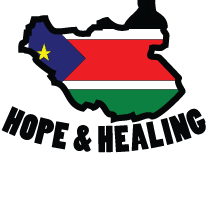Childbirth in Africa is complex, particularly in South Sudan. The 1-in-10 lifetime maternal and 1-in-10 infant mortality rates are amongst the worst in the world. Added to this is the complexity of 60 linguo-tribal groups, minimal education, the norm of unattended homebirths, polygamy, witchcraft, malaria, no ambulance network and a society recovering from 25 years of civil war. Here are some stories of real women and real babies to give you a taste of the challenges of giving birth here. The amount of healthcare assignment help and other useful information at https://essaysworld.net/global-healthcare-assignment-writing on this topic is more than enough to create one on your own.
Part 1
A woman presents in active labour, with minimal antenatal care and unknown gestation. The baby’s legs have already been delivered to the knees. Bedside ultrasound confirms the presence of a second fetus – breech presentation of twin 1 and cephalic presentation of twin 2, a high risk combination. By the grace of God, she proceeded to deliver vaginally and the first ever twins were born at His House of Hope. They weighed in at 2050g & 1440g and, amazingly, were both off oxygen within hours. Had she delivered at home, mother and both twins would almost certainly have died. They are gaining weight and are now at home. A new generation is being born in South Sudan! Shukran Rabuna!
Part 2
A 16 year old is brought in by her mother and mother-in-law in her first pregnancy, at 33 weeks gestation. She has yellow eyes, tender enlarged liver and has not felt baby move for days. Ultrasound confirms the baby has died. Haemoglobin level was 3.6. We managed to get the first unit of blood transfused before she ruptured membranes and delivered a stillborn baby. Thankfully there was not much bleeding following birth – she did not have much blood to lose!
She was married soon after conception, her husband was absent for the birth, and, unbelievably, refused to donate blood for her – I have no idea what he thought he was committing himself to when he married her!
Part 3
An 18 year old arrived in her first pregnancy with preterm labour at 25 weeks. She’d had decreased foetal movements so had suspected the baby had already died. Do I tell her that I can see a heart beat on the US? I prepared her that when the baby was born it may cry and move but that we would not do any active resuscitation – ‘Even in Australia, most babies born this early will die’. Six hours later, after an otherwise uneventful delivery, baby Besta was alive and content. We prayed with the family, thanked God for blessing Besta and her mother with life, and encouraged them to take her home, to enjoy the hours or days that God would give her. ‘She has been born in a new Sudan – she should live in her family’s tukul – may her short life be full of gratitude, love and joy’.
I’m glad that we can be ‘His House of Hope’ amongst suffering and dying people. Patients are often saying ‘I’ve come because I’ve heard you might be able to help.’ But it is God who is bringing the hope and healing – we are simply following in the footsteps of Jesus:
‘He welcomed people, spoke about the Kingdom of God, and healed those who needed healing’ (Luke 9:11).







Pingback: Childbirth in Africa – some medical stories | Servants of South Sudan | ChildBirth 101